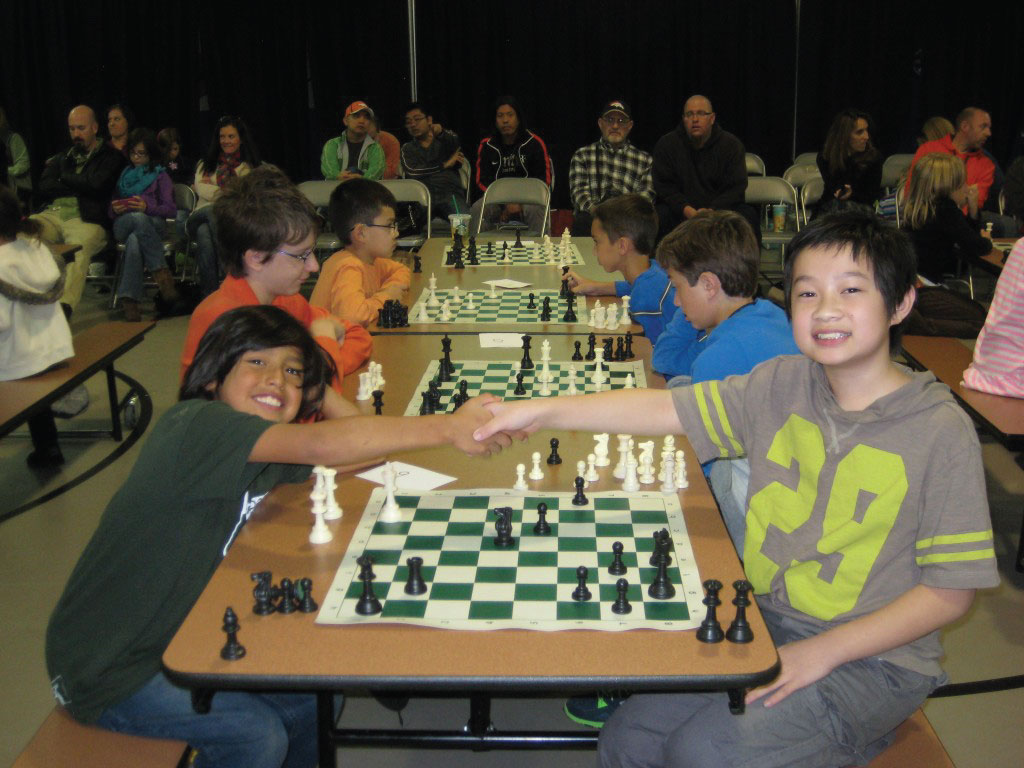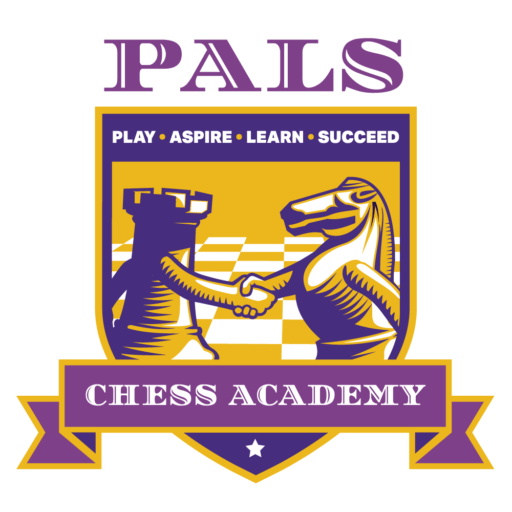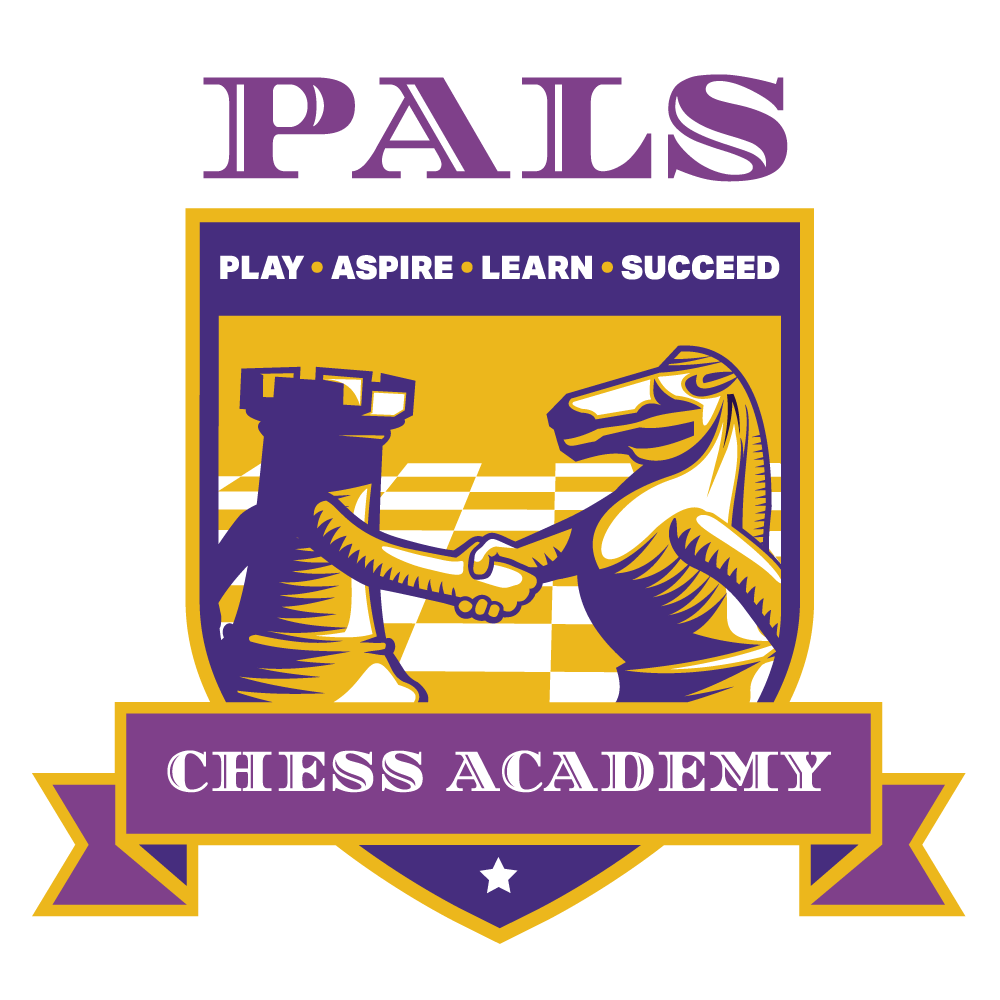BENEFITS OF CHESS
CHESS USHERS IN IMMENSE GROWTH AND LIFELONG SKILLS
Under the PALS curriculum, chess is a tool for personal, intellectual, and academic growth that resonates for a lifetime of critical thinking and cognitive decision-making ability.
The National Scholastic Chess Foundation has listed 10 compelling reasons for children to learn and play chess:
- Chess involves all levels of critical thinking (knowledge, comprehension, analysis, evaluation);
- Chess requires forethought and cultivates visualization skills;
- Chess improves problem solving skills;
- Chess encourages children to overcome the fear of risk-taking;
- Chess teaches concentration and self-discipline;
- Chess enables children to assume responsibility for their decisions;
- Chess rewards determination and perseverance
- Chess raises self-esteem and promotes good sportsmanship;
- Chess encourages socialization skills that extend across cultures and generations;
- Chess is fun!
From the National Scholastic Chess Foundation
All coaches are trained by National Masters and 14-time CO State Chess Champions, Griffin and Sullivan McConnell, co-authors of PALS Chess Academy’s unique and inventive summer camp curriculum. Students in three groups (beginner, intermediate, and advanced) will learn fun and creative lessons never before taught in PALS scholastic chess clubs!
FIVE SKILLS EMPHASIZED IN OUR CHESS CLASSES
OUR CHESS CLASSES FOSTER TEAMWORK AND LEADERSHIP SKILLS
We emphasize teamwork and leadership through a series of challenging group exercises. Students are divided into teams to work on challenging chess puzzles, and they present their answers to the coach or to the entire class. Group leaders help keep their team focused on the task, ensuring that everyone contributes through analysis or questioning, and also that everyone on the team understands the chosen solution to their puzzle.
OUR CLASSES INCREASE CLASSROOM PARTICIPATION SKILLS THROUGH A SOCRATIC METHOD OF EDUCATION
We strongly believe in using chess to teach kids how to think rather than what to think. PALS Coaches teach through a Socratic method of questions that lead children to the right conclusion without explicitly spelling it out for them. This helps children develop an internal dialogue during their own games, in which they ask and answer the key questions that will help them figure out the correct move or plan.
OUR CHESS CLASSES PROMOTE VERBAL SKILLS
We encourage lively debate about specific positions, short-term or long-term plans, opening strategies, and more. Students pick a side and pretend to be lawyers advocating for their client’s position. They are awarded points based on the correctness of their analysis and the persuasiveness, creativity, and reasoning of their argument. Sometimes students will advocate on behalf of a specific piece, such as a forlorn Knight longing for greener pastures.

OUR CHESS CLASSES TEACH MATHEMATICAL SKILLS BY INCORPORATING ELEMENTS OF ARITHMETIC, ALGEBRA AND GEOMETRY THROUGH CHESS
Our curriculum focuses on using chess as a tool to teach thinking skills. Learning piece values, notation, and geometric pattern recognition allows children to hone their math skills without even realizing it! Many of our lessons enhance methods of concrete calculation, a skill that extends across all fields of mathematics. We also play games like “detective chess” whereby students must use mathematical reasoning and pattern recognition to decipher elements of a position.
OUR CLASSES ENHANCE RIGHT-BRAIN SKILLS SUCH AS STORYTELLING, EMPATHY, AND DESIGN
All PALS instructors are equipped with historical chess anecdotes that are often humorous and instructive. Many of our humorous stories are fictional too, and all impart important lessons to the student. Children are encouraged to invent their own stories by personifying the chess pieces. Students are encouraged to be empathetic to anyone who loses a game. They shake hands and say “good game” regardless of the result. Under the coach’s supervision, the student who won makes at least one suggestion for how his/her opponent can correct mistakes for the next game. Students are also presented with chess compositions: made-up positions that illustrate an artistic theme. Students work individually or in teams to design their own chess compositions.

